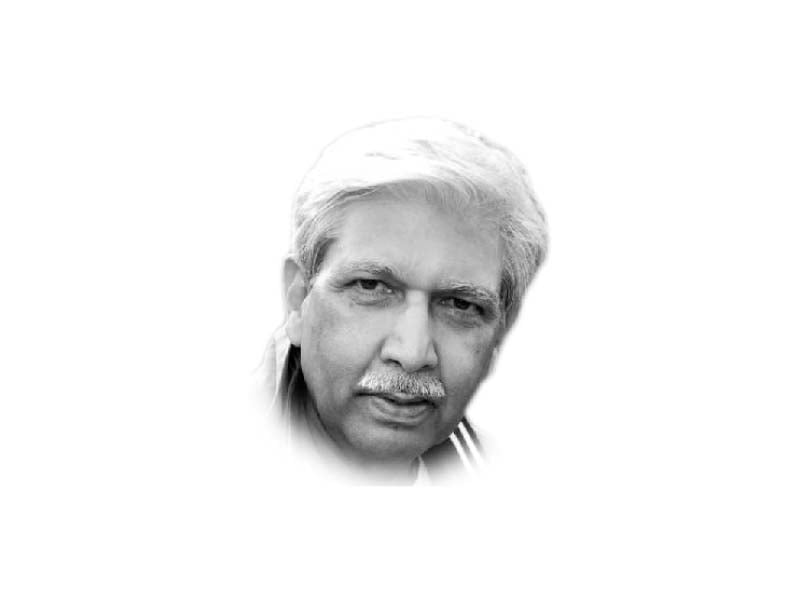
Enough of detailing our collective maladies: a comprehensive elite capture; the alienation of the rest with anything related to government and state systems — rule of law, justice, merit, opportunity, economic viability; inability to sustain daily lives given the inflation and limited incomes of the ninety-nine percent; an unviable and destructive debt and an explosive energy structure rendering the economy unsustainable in an impending meltdown. If there is one thing that can possibly remedy these ills it must begin with dispossessing the elites from the control of the state and its resources.
How that happens is the key. A revolution? The ones that have come about have not necessarily always borne immediate benefit but have invariably delivered even more chaos. Many would quote the Arab Spring: Iraq, Libya, Yemen, Syria and Tunis are irrecoverably destabilised — some have only a semblance of order. Historically too, the French, Russian and the Iranian revolutions over a long span only bequeathed further turmoil and instability. When one order was displaced, it took time to forge another to take its place and find the promised balance — some are still embroiled in uncertainty. A society’s structural and economic imbalance and skewed disruption in favour of a selected class only — we call them elites — was the trigger in each case to social disruptions which forced these revolutions in the first place.
Revolutions displace extortionist and exploitative systems meant to benefit selected few at the cost of the deprived millions in a callous and despicable governing culture. Revolutions create the space for a displacement order more aligned with the aspirations of the masses in appeasement of their immediate disconcert and perpetual unease. The usual refrain is: can Pakistan afford a revolution? The easy answer is that if the ship is wrecked and certain to sink, people on board will seek options to survive. In matters of state people will displace orders. A revolution of the people is the only emergency exit in such matters when the state and governments have persistently failed the people and have instead appropriated the entire order to benefit a few at the helm.
Are we there yet? The economy is impossible to recover in how it has come to be structured over time. All of note in these matters have asked to reform and restructure, none of which is on the anvil, nor will a government venture on that path for fear of alienating fellow stakeholders. Insurmountable debt and an unviable energy sector are the dead-weights which will sink the ship. Standby arrangement with IMF without reforms or absence of changes in the quintessential tax regimes which reward the ultra-rich with rebates, reprieve and relief, a cosmetic tweak alone and dependence on wishful investment and budgetary support loans in the hope that it will recover the economy can only be illusory.
The salaried constitute any remaining middle class in the country. The blue-collared who formed the lower tier of this class have already been pushed down by joblessness and engorging inflation to the ranks of the bona fide poor — current poverty levels by even exaggerated PPP standards hover at 45-50 per cent. The latest spate of taxation chunks away as much as seventy per cent of a salary in some cases. They too will soon be pushed to either swindle and cheat to survive or be perpetually pushed down into the category of the deprived. Only a cosmetic pretense at economic reform (claimed) will only perpetuate the pain and hence the discontent and the unrest. Without wholesome and wholesale changes to the budgetary plan we will only be edging closer to a melt-down. Cosmetic resort will not bring relief nor portend any promise. People are already on the edge. Unbridled and uncontrolled crime manifests the brewing pain and seething frustration.
Politics comes next in this spate of common predicaments. It may be a small part of the malady that envelops us but is not the only key to easing the pain. A judicious economic plan and realistic assessment of the budgetary needs is, but political turmoil does add to the feeling of the edifice giving way from under the nation-state construct. Given Pakistan’s limited choices or options there is little that any party in power can do to help an economy which has outlived its sell-by date. Populism can either please people or survive with wholesome restructuring. PTI is equally devoid of ideas on restructuring the economy exhibited by its lack of comprehension and missteps when in power. It too benefited mostly its cronies and patrons. How can the new elites — those that rise to power as the displacement elites — be any different and resort to such drastic redrawing of the economic map even if it is the only route to survival?
The new IMF arrangement or debt restructuring, if the Chinese agree to it, will only perpetuate the rule of the elites giving them a new lease to extend the status quo. Which only means that the poor, which is the rest of the nation, will continue to roil in their misfortune. Will that only bring us closer to a popular uprising? Probably yes, unleashing turmoil and chaos which can only lead to the dangerous disintegration of a nation of 250 million people. Sensible governing set-ups will intervene in such situations with options which can delay the ominous foreboding. Away from the introverted and power-hungry disposition of the power elites, a fresh election would have been the most democratic choice to reinstitute hope among the masses; they have patently failed the moment. It was under a similar set of conditions that Imran Khan had found relevance. A repeat of similar obtaining conditions has proffered another option in Shahid Khaqan Abbasi who has pitched his stakes.
The only trouble with this strategy is that it only resolves the political side of the conundrum. For a people-led and people-focused economic remedy either the elites should cease to be elites — which is almost impossible because of the nature of their being and belonging and how the power-stakes are arrayed in the country as a pattern — or political parties, especially the PTI and Abbasi’s APP should induct the common folks in their line-up. They don’t have to be from among the poor and the illiterate but the white collared from among the professional class that can represent those that have been outliers in the existing model. The bureaucracy, the judiciary and the military will need to stand behind such a set-up. This alone can free the control of the state and its resources from the stranglehold of the traditional elites and deliver it to the people. A compatible model of the Aam Aadmi Party (AAP) in India has only been partially successful, but should that keep from giving sanity another chance before revolution arrives?




1730959638-0/trump-(19)1730959638-0-165x106.webp)









COMMENTS
Comments are moderated and generally will be posted if they are on-topic and not abusive.
For more information, please see our Comments FAQ